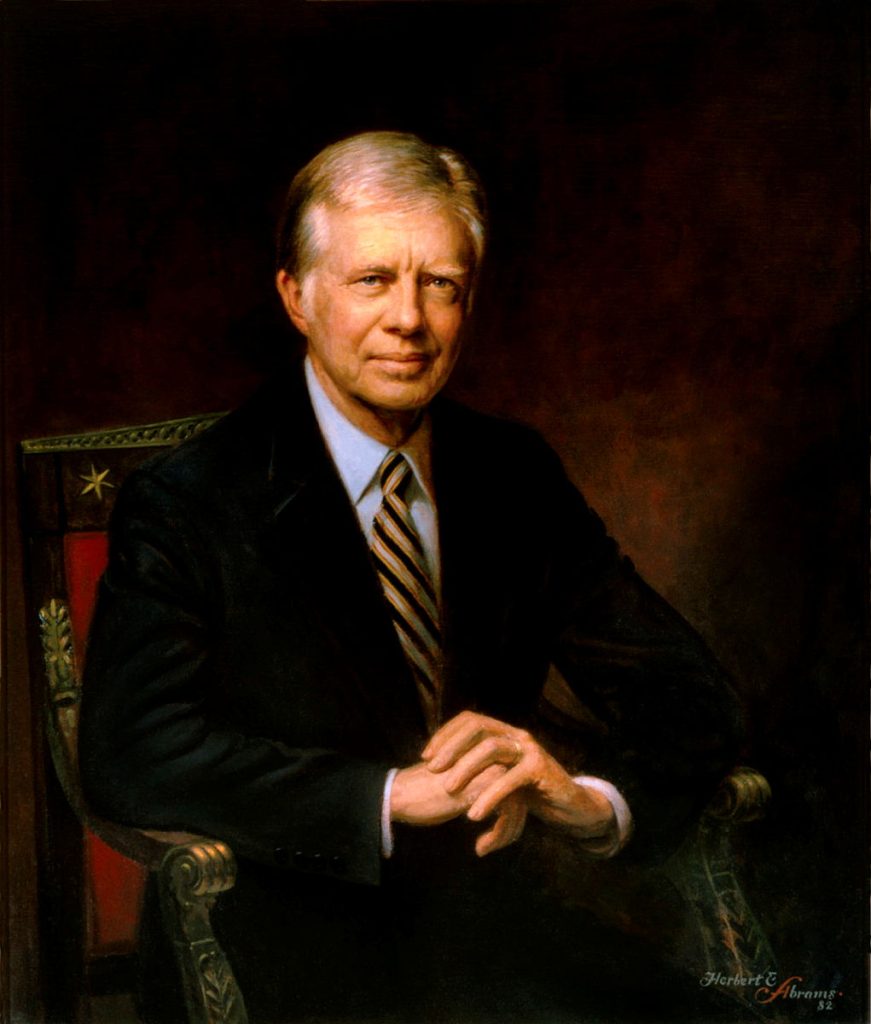By Daniel Rose
Former U.S. President James Earl Carter (October 1, 1924 – December 29, 2024) will be widely acknowledged as the American political figure whose career after leaving office was a model for all national leaders.
As our 39th President, he was regarded by many (unfairly) as less effective than most. As post-President, he has been internationally revered as a peacemaker, a relentless and effective backstage diplomat, a human rights champion, and as an advocate for the homeless. Domestically, he has been seen as an economic conservative/social liberal, a born-again Christian (“an earnest evangelical”, in his own words) and as one reflecting the best of American exceptionalism through his philanthropy, his energy, and his values.
In his Presidential inaugural address, this courageous Georgia ‘cracker’ (who won the electoral majority in all states of the old Confederacy except Virginia) proclaimed, “The time for racial discrimination is over”; and the Carter administration (1977-1981) appointed record numbers of women, Black, and Hispanic people to federal positions.
Carter praised and respected the ‘free press,’ regardless of how hostile to him many journalists were. His endlessly repeated favorite saying was, “Trust me; I will never lie to you.” He aspired, he said, “to make Government competent and compassionate”; and the removal of racial barriers was “a continuing governmental challenge.”
Carter wrote 32 well-received books, and Habitat For Humanity, his vehicle for providing housing for the disadvantaged, has been active in 70 countries throughout the world.
In recent years, Carter said that his post-presidency, specifically his work at the Carter Center (fighting contagious diseases, promoting remedial elementary education, encouraging appropriate vocational training, etc.), had been “far more gratifying for [him] personally” than his years in the White House.
Objective future historians will of course primarily note Carter’s preeminent role in the Camp David Accords, which brought peace (for the moment, at least) to Israel and Egypt and which earned 1988 Nobel Peace Prizes for Egyptian president Anwar Sadat and Israeli prime minister Menachem Begin. Historians will also note that as President, Carter created the first U.S. Department of Education to provide federal funding to assist state and municipal educational efforts; that he dramatically expanded our National Parks system, particularly in Alaska; and that he brought into his administration such tough-minded operatives as Paul Volcker, among many others.
Young people of today, with limited knowledge of the earliest days of the Civil Rights movement, might be interested to learn that Carter’s 1977 Presidential campaign was enthusiastically supported by great Civil Rights leaders such as Andrew Young and Rev. Martin Luther King, Sr. (yes, Senior!), the Pastor of Atlanta’s leading Black church. (As Governor, Carter had placed a portrait of Rev. Dr. MLK Jr. in the state capitol.)
For our immediate purpose, as we relate Jimmy Carter to today’s social problems, let us recall the important role model he provided to our public, such as his being the very first in his family to graduate from high school.
Yes, friends, we do have heroes today, and Jimmy Carter is high on the list.

